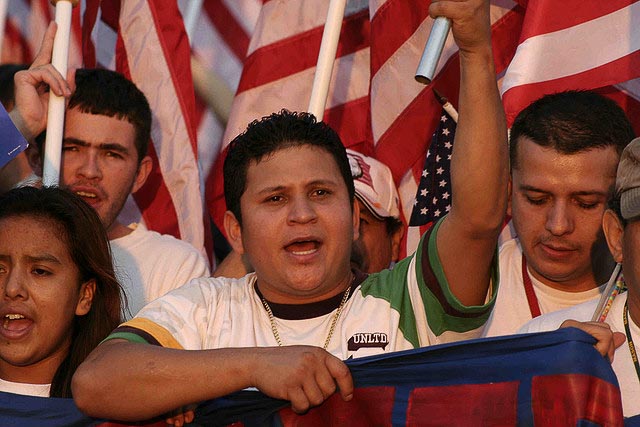There’s a persistent discussion over the extent to which immigration and other forces driving the diversification of the country will affect the county’s political landscape.
But what effect will those changes have on the dynamics of the typical American family?
That’s the question posed by researchers Amy Lucas and Stephen Cherry in their study “The Immigrant Experience: Houstonians’ Family Attitudes and Behaviors.” Their study, completed earlier this year, used data from the 2011 Kinder Houston Area Survey to compare the way families in four different racial or ethnic groups act and think.
The results suggest that diversification—just as it has driven major structural changes in the country’s politics – promises to do the same within the country’s households.
The Study
“There are very few studies that examine differences in behaviors and attitudes across all four main racial and ethnic groups in the United States,” the researchers write. “As the United States grows increasingly diverse, it will be crucial to understand what, if any, differences in families’ behaviors and attitudes exist across all racial and ethnic groups.”
Owing to its diversity, Houston was as an ideal setting for them to study the relationship between families’ patterns and ethnicity.
The researchers sought to explore the extent to which family attitudes and behaviors owed themselves to race and ethnicity, especially by comparing Latinos and Asian-Americans to native white families.
The three behaviors they used as comparisons between the ethnic groups were marital status, interracial romantic involvement and the number of children a family has.
For attitudes, they compared racial and ethnic group opinions on working mothers and same-sex marriage.
The Findings
The various racial and ethnic groups showed significant differences in the three behaviors the researchers examined.
White people are more likely to be married than black people or Asian-Americans. But there isn’t a statistically significant difference in marriage rates between whites and Latinos, Latino immigrants, or Asian immigrants.
Latinos, black people and Asian-Americans are more likely of having a romantic relationship with someone from another racial or ethnic group than whites.
Black people, Latino immigrants, Latinos and Asian-Americans all have more children than whites as well. There isn’t a significant difference in the number of children that white families and Asian immigrant families have.
When it came to attitudes, however, the racial and ethnic groups didn’t demonstrate the same level of differences.
Immigrants, both Latino and Asian, were more like to think kids would have problems if their moms worked than white people. There wasn’t a significant difference in the attitudes towards working moms between white people and the other racial and ethnic groups.
The researchers, after controlling for all possible age and demographic variables, didn’t find any significant difference in the opinions towards gay marriage among the different racial and ethnic groups.
The Implications
As both Houston and the United States become more diverse, family patterns can be expected to change as well.
The increased willingness of non-whites to date outside their own race or ethnicity could contribute to the pace of diversification. Likewise, the fact that non-whites tend to have more children than white people could do the same.
Meanwhile, the research found further evidence that increased exposure to mainstream American culture leads to adoption of its attitudes among racial and ethnic groups.
The Immigrant Experience: Houstonians’ Family Attitudes and Behaviors | Amy E. Lucas and Stephen M. Curry, University of Houston – Clear Lake; Kinder Institute for Urban Research. February 2015.

